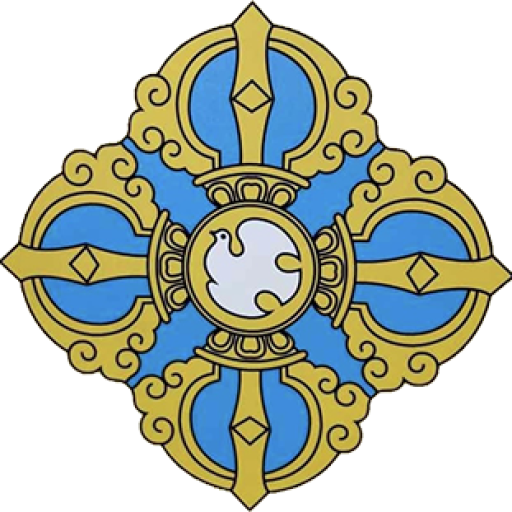THE ELEVENTH ABCP GENERAL ASSEMBLY
The Eleventh ABCP General Assembly was held in Ulaanbaatar, Mongolia on 21-23 June, 2019 under the motto “Rejuvenation and Way Forward” as the present General Assembly was being held after a long break when the last 10th General Conference was held in Laos in 2003. The General Assembly was also held in the spirit of celebrating the 50th anniversary of the foundation of the Asian Buddhists Conference for Peace, the foundations of which were laid by the Asian Buddhists in late 1969, the so-called “Initiative Group” which decided to set up a peace movement of the Asian Buddhists.
The focus of the Eleventh ABCP General Assembly was to rejuvenate and revive the activities of the Asian Buddhists Conference for Peace as desired by the ABCP National Centers.
The Eleventh General Assembly was attended by more than 300 delegates, guests and observers from 16 National Centers: Bangladesh, Cambodia, CTA in Dharamsala, India, Japan, Democratic People’s Republic of Korea, Republic of Korea, Laos, Mongolia, Nepal, Russia, Sri Lanka and Vietnam. It adopted the “Ulaanbaatar Declaration” spelling out the tasks facing the Asian Buddhists Conference for Peace. It set up nine Standing Commissions of ABCP.
The Chief guest of the 11th General Assembly was His Excellency Mr. Kh. Battulga, President of Mongolia, who also addressed the General Assembly. The Mongolian President in his congratulatory message to the participants of the 11th ABCP General Assembly, emphasized that “Mongolia has always supported the Asian Buddhists Conference for Peace, and it has been seen as a valuable contribution of Mongolians not only to ensuring peace throughout the world, but also to maintaining its values, which are still valid to this day.”
Singling out the role of ABCP, the Mongolian President said, “The Asian Buddhists Conference for Peace is one of the few religious organizations registered with the UN with a consultative status. I hope that the tangible initiatives for Peace will set an example for international religious representatives not only in Asia but in the world to become the foundation for nuclear disarmament and vision for a peaceful future.” The Mongolian President continued “Mongolia is a peace-loving nation and Buddhism has been the traditional religion of the Mongolian people. Since the Great Mongolian state – the Hunnu Empire – Buddhism has spread three times in Mongolia, protecting the Mongolian nation from foreign aggression and creating the conditions for inner unity and national sovereignty. International scholars unanimously support this historical conclusion. At a certain stage of its development, Mongolian Buddhism experienced immense suffering, and we lost a great number of human lives due to political repression. This bitter experience must not be forgotten, nor be repeated ever again. The Government of Mongolia and its highest legislative body – the Parliament, welcomes the initiative of making Vesak, the 15th day of the first month of summer of the lunar calendar, an official public holiday. The Mongolian people, taking example from other Asian countries, are delighted to celebrate a day for cherishing ethics together – a day to respect our history and ancestors, to reflect and purify our achievements and shortcomings through our cognizance of virtue and sin, and to progressively practice our compassionate love for all living beings.” The Mongolian President Kh. Battulga concluded his remarks by emphasizing that the “active participation and wealth of knowledge by the distinguished Buddhists and followers of faith are crucial for running the state affairs and cherishing the state and civilian harmony that originated from the times of the Great Chinggis Khaan.”
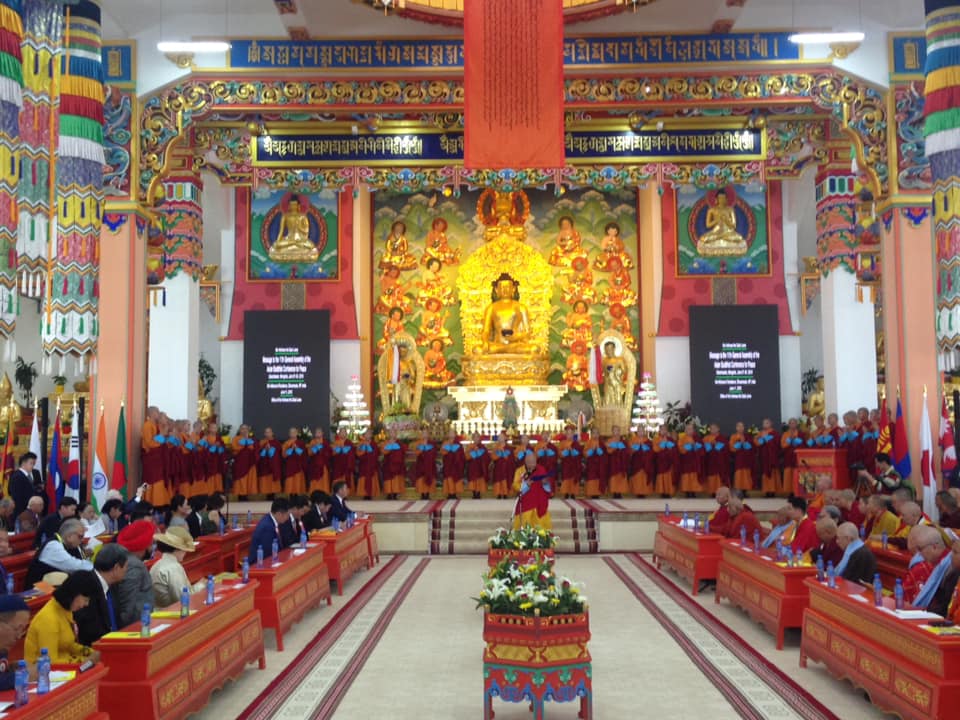
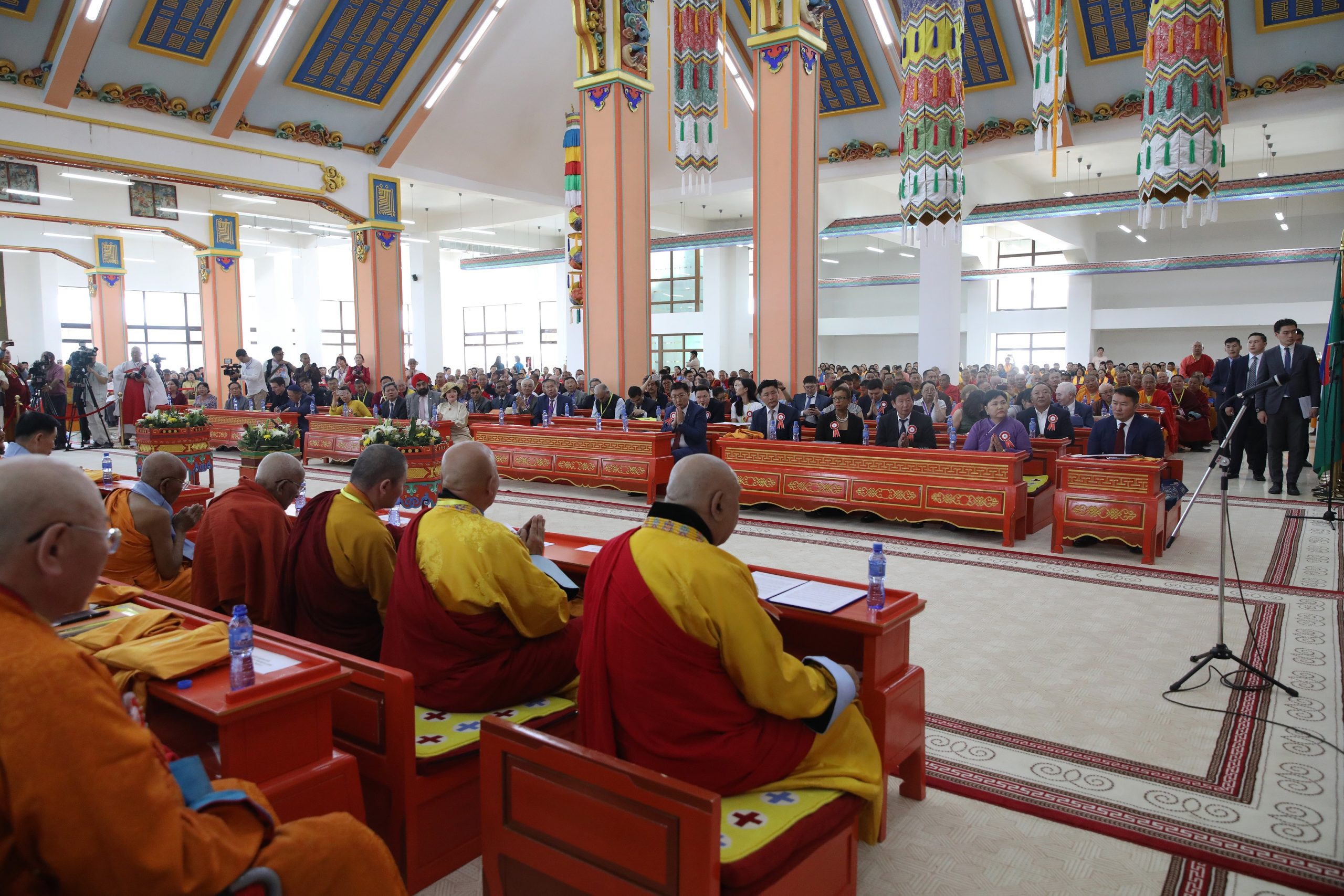
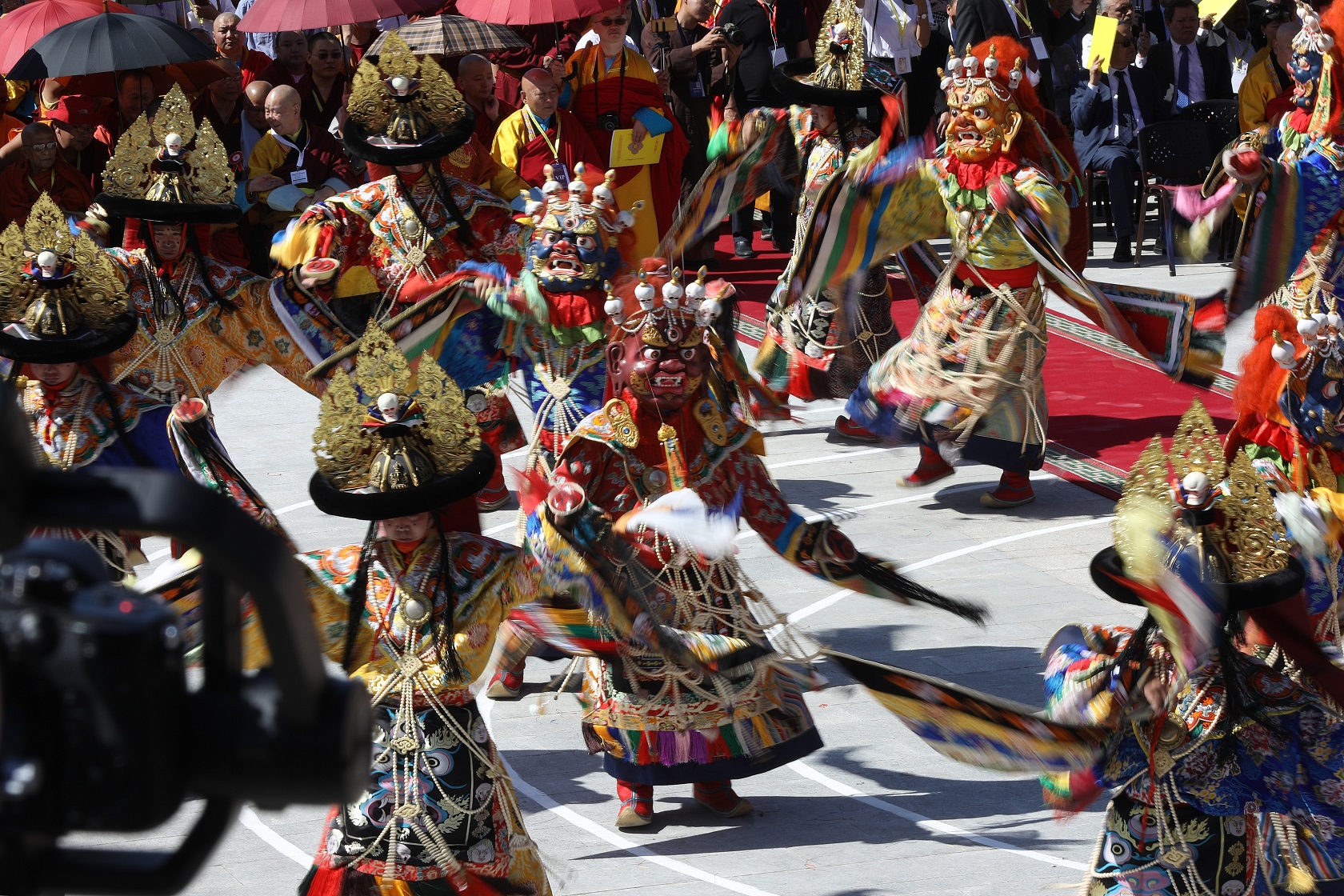
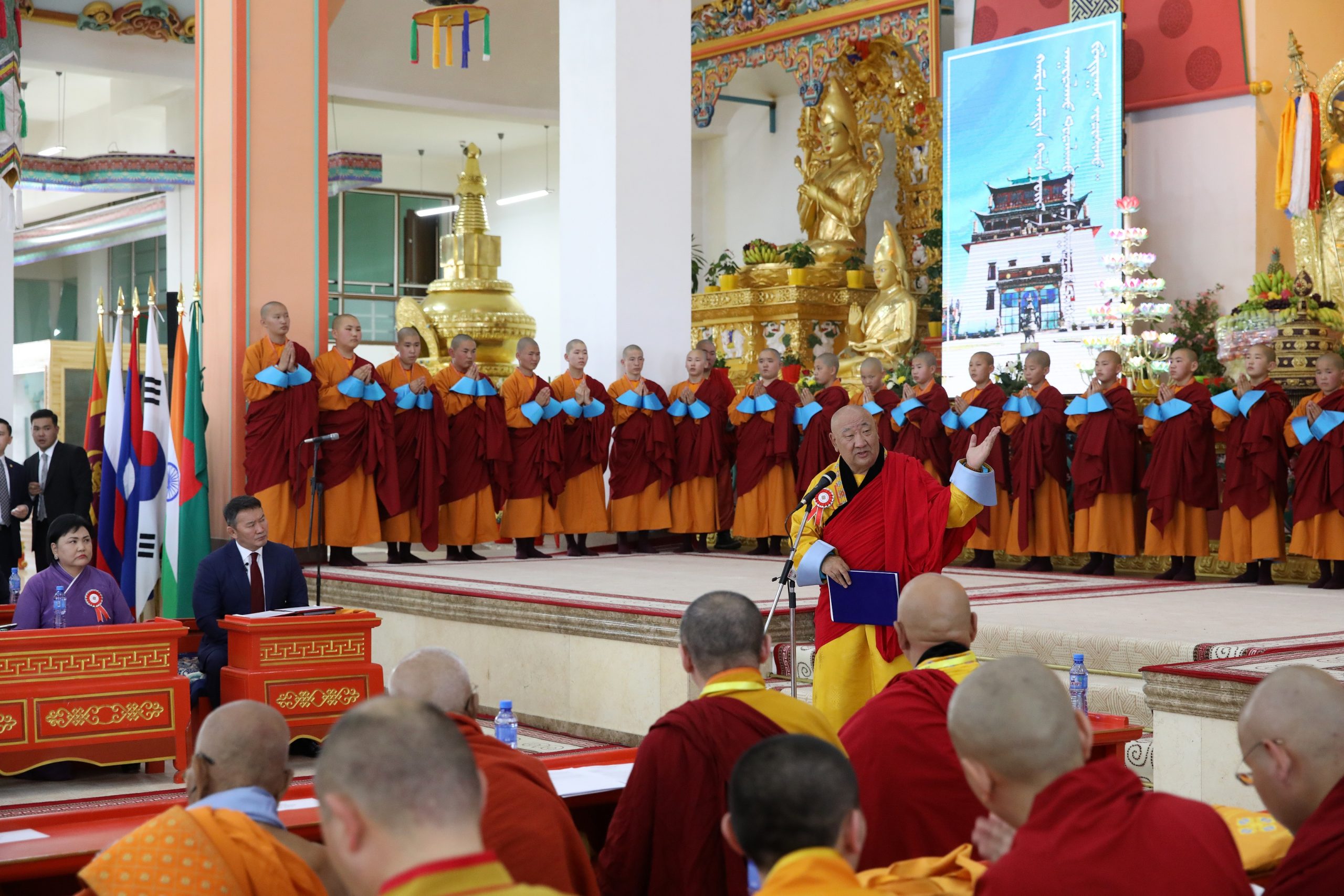
The 11th General Assembly and the 50th anniversary celebrations of ABCP was also attended by Ambassador Inga Rhonda King, 74th President of the UN Economic and Social Council (ECOSOC). Ambassador Inga Rhonda King said, “Faith-based organizations have an important role to play in promoting durable peace and sustainable development. The UN General Assembly has acknowledged the active engagement of the United Nations system with faith-based and cultural organizations in the promotion of interreligious and intercultural dialogue and in bringing together people of different cultures, religions, faiths or beliefs to discuss common issues and objectives. The Assembly, in its resolution 73/129, also invited “Member States to further promote reconciliation to help to ensure durable peace and sustained development, including by working with faith leaders and communities and through reconciliatory measures and acts of service and by encouraging forgiveness and compassion among individuals. “This is because the values of faith-based organizations are closely aligned with those that are embedded in the sustainable development goals of ending extreme poverty and hunger, promoting gender equality and peaceful societies and protecting the environment. Many of your organizations have already been in the trenches working with Governments, other Non-Governmental Organizations, foundations and community-based organizations in providing access to health, education and other social services, particularly in rural areas. “As we approach 2020, it must be a decade of delivery for the poorest and the most vulnerable. I count you to continue to support the efforts of the United Nations to reach the furthest behind first,” concluded the ECOSOC President.
The General Assembly was also addressed by Mr. K. Sairaan, Head of Islam Association of Mongolia, Rev. Pierre Claude Palussiere, Representative of the Catholic Church in Mongolia, Rev. Antony Gusev, Head of the Russian Orthodox Church in Mongolia. The 11th GA approved the names of several eminent Buddhist monks as its Patron. They included His Holiness the Fourteenth Dalai Lama, HH Samdech Tep Vong (Cambodia), HH Suddhananda Mahathero (Bangladesh), His Eminence Thich Thien Nhon (Vietnam), and Most Ven. Mahinda Sangharakhita Mahathero (Sri Lanka). The 11th General Assembly of ABCP also elected new office bearers. H.E. Most Ven. Khambo Lama Gabju D. Choijamts (Mongolia) was unanimously elected the ABCP President. Three Vice-Presidents of ABCP were also elected. They are Most Ven. Damba Ayusheev (Russia), Most Ven. Geshe Jangchub Choedon (India) and Most Ven. Dr. Thich Duc Thein (Vietnam). Most Ven. Kh. Byambajav from Mongolia was elected as the ABCP Secretary General while Most Ven. Khy Suvanaratnana (Cambodia) and Mr. Sonam Wangchuk (India) were elected unanimously as Deputy Secretary General.
An international scholarly conference “Buddhist Heritage and Values in the Twenty First Century” was held on the sidelines of the 11th general Assembly, jointly organized by the Mongolian Academy of Sciences and the Gandan Tegchenling Monastery, the Center of Mongolian Buddhists. The academic session was attended by many distinguished scholars and academicians, diplomats who presented their papers.
Given the years of non-activity of the organization, the Charter of ABCP was revised and re-edited, which was discussed and unanimously approved by the General Assembly delegates. The Charter of ABCP focused on ways to rejuvenate and reinvigorate the activities of the Headquarters and all the National Centers, breathing new life into the organization.
The 11th General Assembly decided that the 12th General Assembly will be held in New Delhi in 2022.
